World Water Day 2023: Newcastle Hubs in action
28 February 2023 | By: Newcastle University | 6 min read
This World Water Day is about accelerating change to solve the world water and sanitation crisis. And because water affects everyone, it’s up to all of us to take action. Find out how Newcastle University is working to meet Sustainable Development Goal 6: Clean Water and Sanitation for all by 2030.
Water is an issue for all
Water is humanity’s most valuable resource. It’s essential to food and energy security, health and wellbeing, economic prosperity, and all life on Earth. Yet nearly 80% of the world’s population live in areas where water security is threatened by pressures like climate change, conflict, ecosystem damage, gender inequalities, land degradation, over-abstraction, pollution, poor governance, and uncontrolled urbanisation.
Back in 2015, the world committed to Sustainable Development Goal 6 – the promise that everyone would have safely managed water and sanitation by 2030.
But humanity is seriously off-track. Billions of people and countless schools, businesses, healthcare centres, farms and factories are being held back because their human rights to water and sanitation have not yet been fulfilled.
This is a once-in-a-generation moment for the world to unite around water, and we are determined to make change happen.
Here at Newcastle, we are host to two hubs, each making a difference to global water issues: the Water Security and Sustainable Development Hub, and the Living Deltas Hub.
Both hubs are doing innumerable things to accelerate change. We’ve chosen just three of their highlights to demonstrate the good they do to help billions of people and environments around the world,
The Water Security and Sustainable Development Hub
The Water Security Hub brings together an international, interdisciplinary team to tackle threats to water security and contribute to achieving UN Sustainable Development Goal 6.
Water intersects the many global challenges we face – climate change, food security, inequity, sustainable development, energy, public health, pollution, biodiversity, and ecosystem degradation are all reliant on, or inextricably linked to, water in some form or other. Working across different countries and contexts to tackle the water crisis at both local and global scales, the Hub uses an integrated approach that looks at water security as a complex system of interactions and interdependencies between people, institutions, natural environment, and infrastructure.
“Water is everything, and everything is water.”
Prof. Dr Choong Weng Wai, Universiti Teknologi Malaysia
The Hub’s vision is to enable sustainable water security, helping to build a better, more resilient world by developing an approach that better understands water systems; values all aspects of water; and strengthens water governance to enable integrated water management.
How is this hub accelerating global change?
1. Fast, portable water quality testing
Water quality surveying is essential for achieving safe water and good health, but comprehensive water quality monitoring can be costly, time-consuming, and resource-heavy. Regarded as a world first, the Hub has developed a portable ‘lab in a suitcase’, which allows researchers and scientists to go anywhere in the world and screen potentially unsafe water for more than one hundred different types of pathogens. Collected data can be used onsite to measure the effectiveness of wastewater treatment, track pollution sources, and determine water safety.
This innovative technology makes it easier, cheaper, and faster to assess water quality, enabling public health officials to better monitor and manage local hazards, with the potential to help provide millions of people access to safe water and save lives.
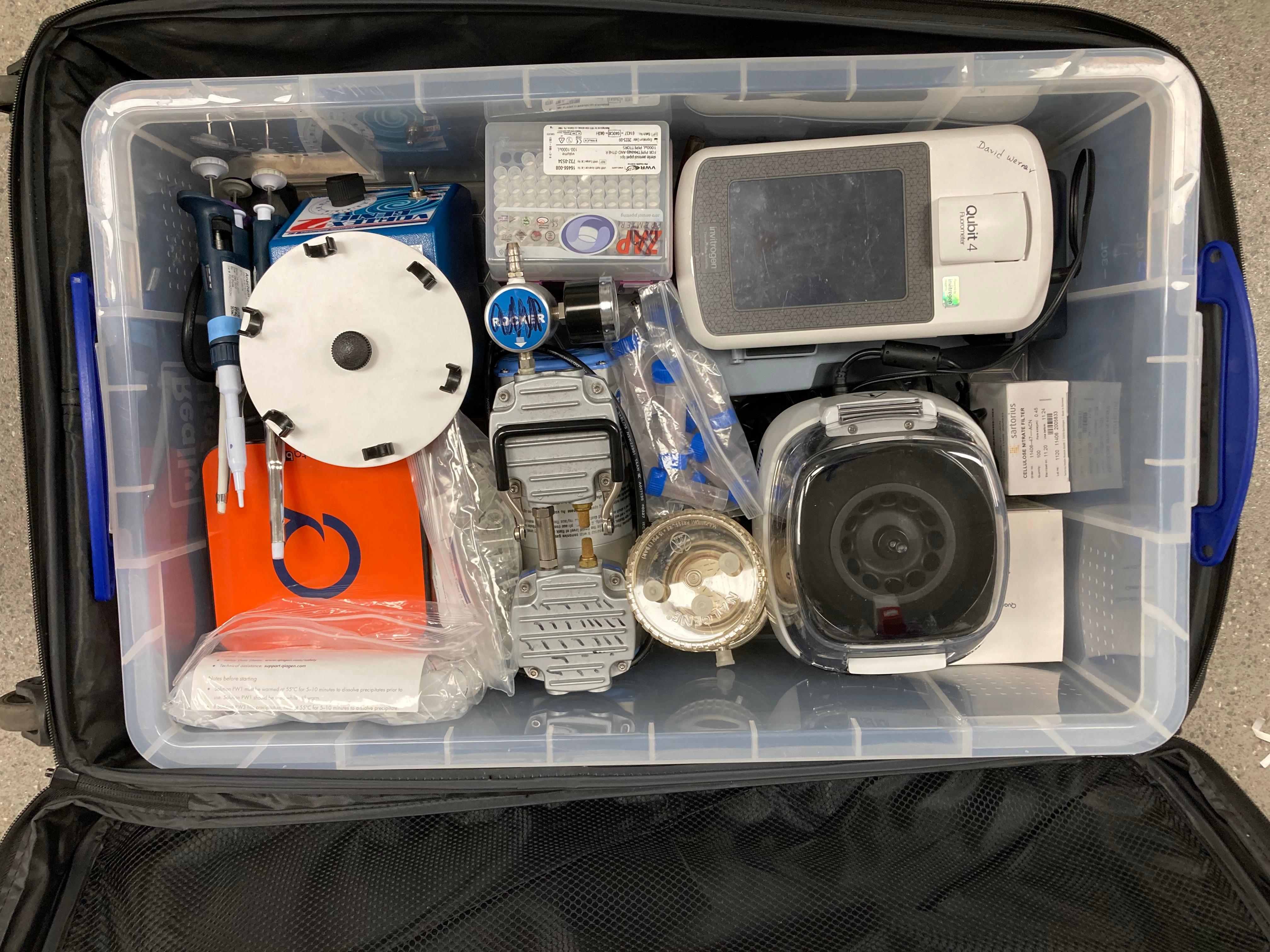
2. Water-sensitive planning for sustainable urban development
Uncontrolled and poorly planned urbanisation can lead to the exacerbation of water security issues in our cities. For example, inadequate storm drainage networks can increase the likelihood of severe flooding, leading to damage to infrastructure, and risking the health and lives of urban populations.
The Hub is working closely with local and national authorities to develop a water-sensitive approach for urban planning and development, making our cities more sustainable and water secure. Water-sensitive planning (WSP) recognises the centrality of water in the urban built environment, something often overlooked in planning systems.
By putting water and climate adaptation at the heart of sustainable urban design, we can ensure that our cities provide equitable water access for all, reduce risks to health and infrastructure, regenerate ecosystems, and limit impacts on the environment. The Hub’s water-sensitive planning approach is already being implemented in urban development plans, and researchers are informing policy in India.
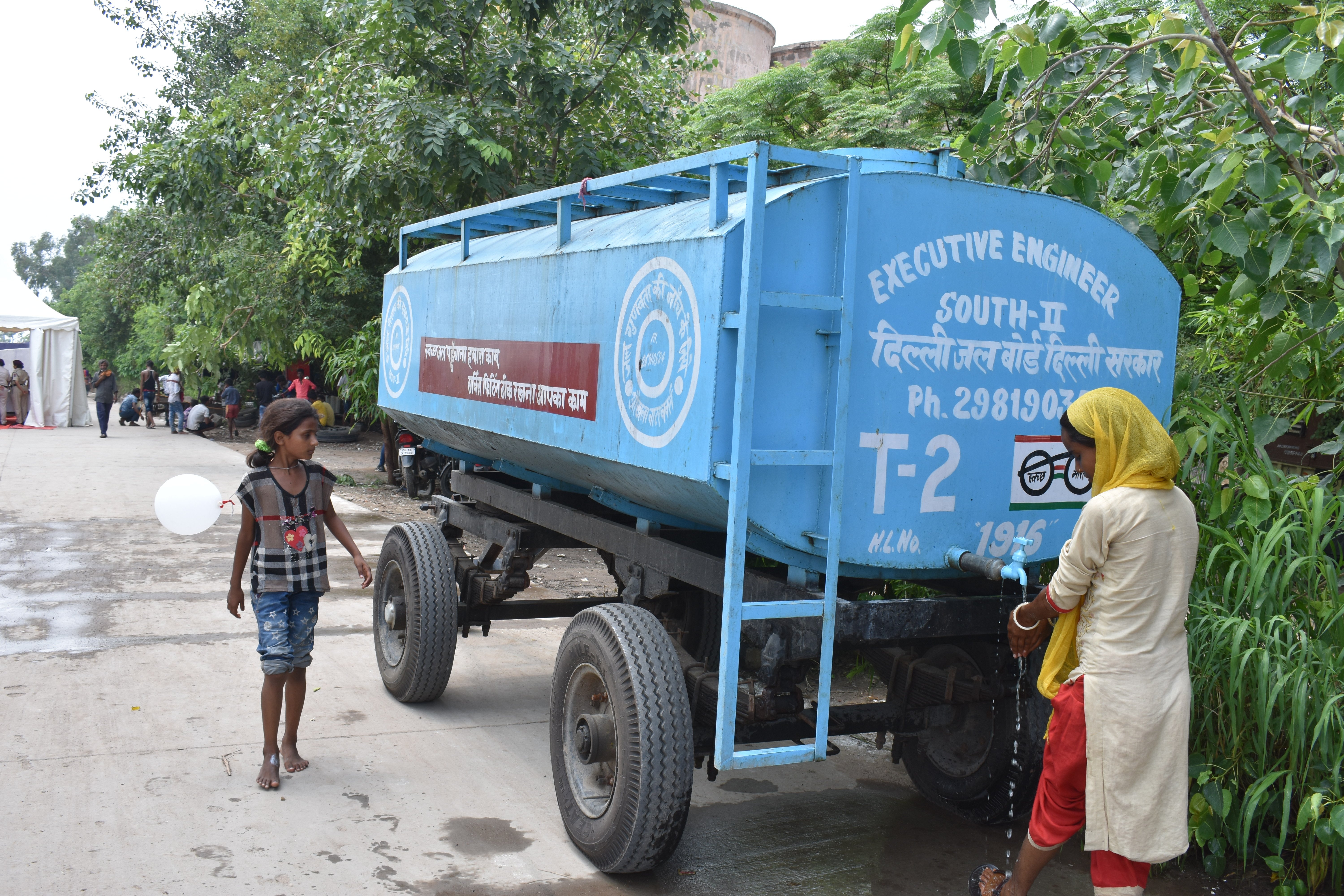
3. Developing risk frameworks for climate resilience
Climate change is profoundly affecting global water security. The Hub is developing a new methodological framework to assess multiple water risks – including floods, droughts, and water quality – in a consistent way.
Our cloud-based modelling platform, with dynamic integration into the Hub’s global water data platform, uses advanced data analytics to integrate interdisciplinary data to provide new insights into water and climate risks. By co-designing with stakeholders in industry, communities, local and national government, the integrated risk framework will be used alongside a ‘rapid design’ tool, to accelerate the implementation of climate-resilient water security interventions.
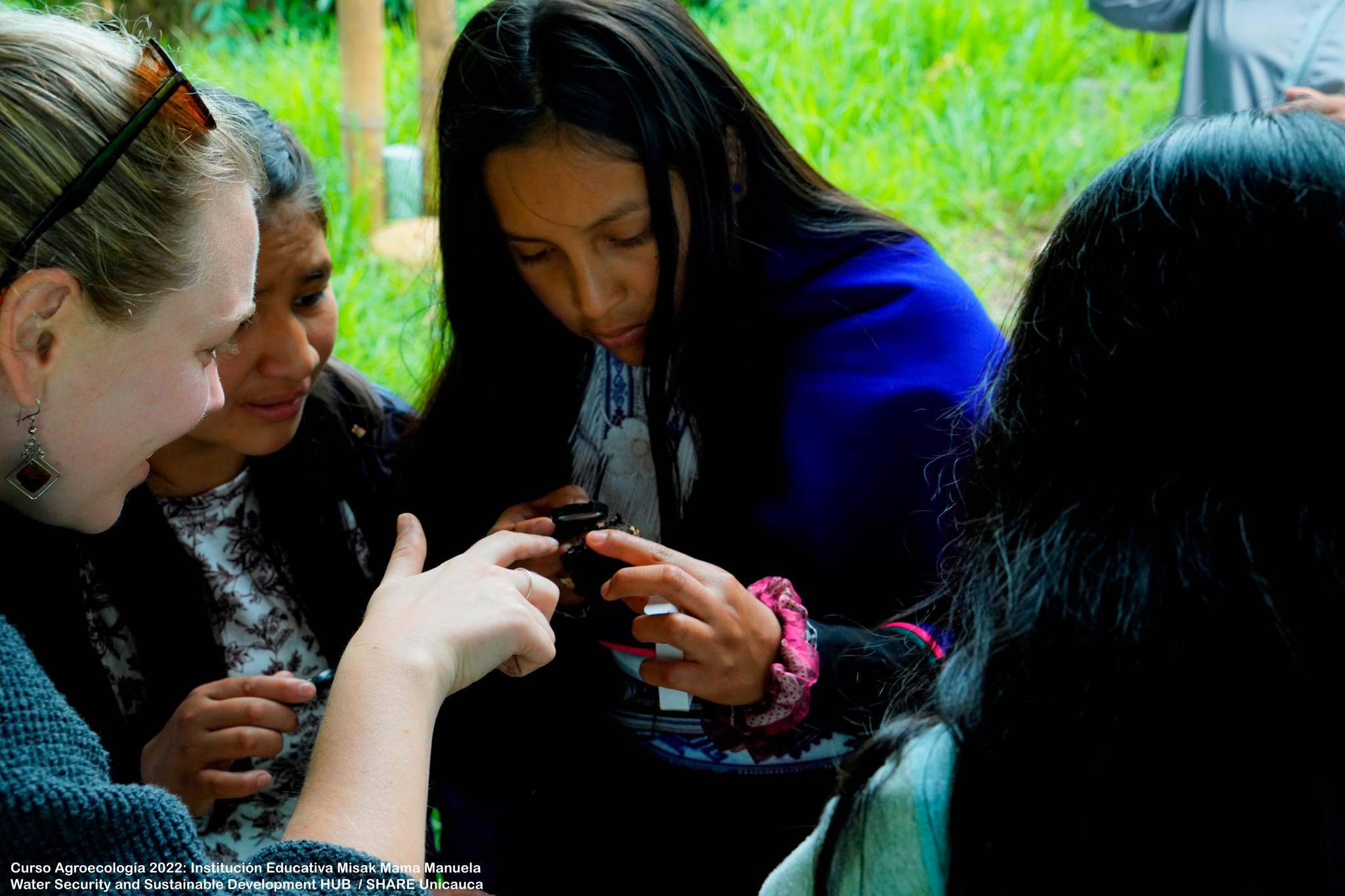
The Living Deltas Hub
Deltas occupy only 1% of the global land area but are home to more than half a billion people.
Over time, human impacts are pushing these deltas ever closer to systemic tipping points. The tension between human resource use and the effects of climate change increasingly threatens South and Southeast Asian delta livelihoods and poses a highly complex development challenge. How can these culturally unique deltas remain as functioning social-ecological systems in the face of continued human exploitation, landscape scale change, and delta-wide environmental degradation?
The hub’s research focuses on the Red River and Mekong River deltas in Vietnam and the Ganges-Brahmaputra-Meghna (GBM) delta in Bangladesh and India. Funded by UKRI under their Global Challenges Research Fund (2019-2024), Living Deltas brings together an international, multidisciplinary team of over 130 researchers who work in equitable partnerships with governments, policymakers, delta communities, and international organisations to build a better understanding of what resilient delta societies and sustainable delta landscapes for the future should look like.
Working in partnership with delta communities, we are co-producing new understandings of behaviour and response to rising risks and threats to delta socio-ecological systems (SESs). Our aim is to seek sustainable solutions, address the United Nations’ Sustainable Development Goals (SDG) agenda more specifically in deltas, and raise resilience and adaptive capacity in delta populations vulnerable to global change and delta degradation over time.
How is this Hub accelerating global change?
1. Mangrove forest restoration
The coastal fringes of the South and Southeast Asia delta regions are amongst some of our most vulnerable landscapes.
Mangrove forests, which provide long-term carbon storage, natural coastal protection, food security and underpin the livelihoods of millions of people, are being lost to climate change and deforestation at a much higher rate than elsewhere in the world. Mangroves are also a key bioshield from climate extremes.
Mangrove restoration is subject to major challenges. Up to 90% of mangrove restoration projects fail in the long term because the wrong species are planted in the wrong locations or endure the wrong conditions.
Our researchers have developed a new affordable and accessible hydrodynamic sensor, the ‘Mini Buoy’, to help monitor environmental conditions at the coast and elsewhere, such as around embankments built to keep saline water out and allow agriculture to take place, but which are under threat from rising tides and powerful cyclones.
In mangrove restoration planning, knowledge of currents, waves, and tides is therefore key - yet conventional equipment is expensive, difficult to transport, and complicated to use. The Mini Buoy facilitates the gathering of this data, which is then analysed using a bespoke online tool enabling us to provide practical guidance to stakeholders for restoring mangrove forests and the ecosystem services they provide.
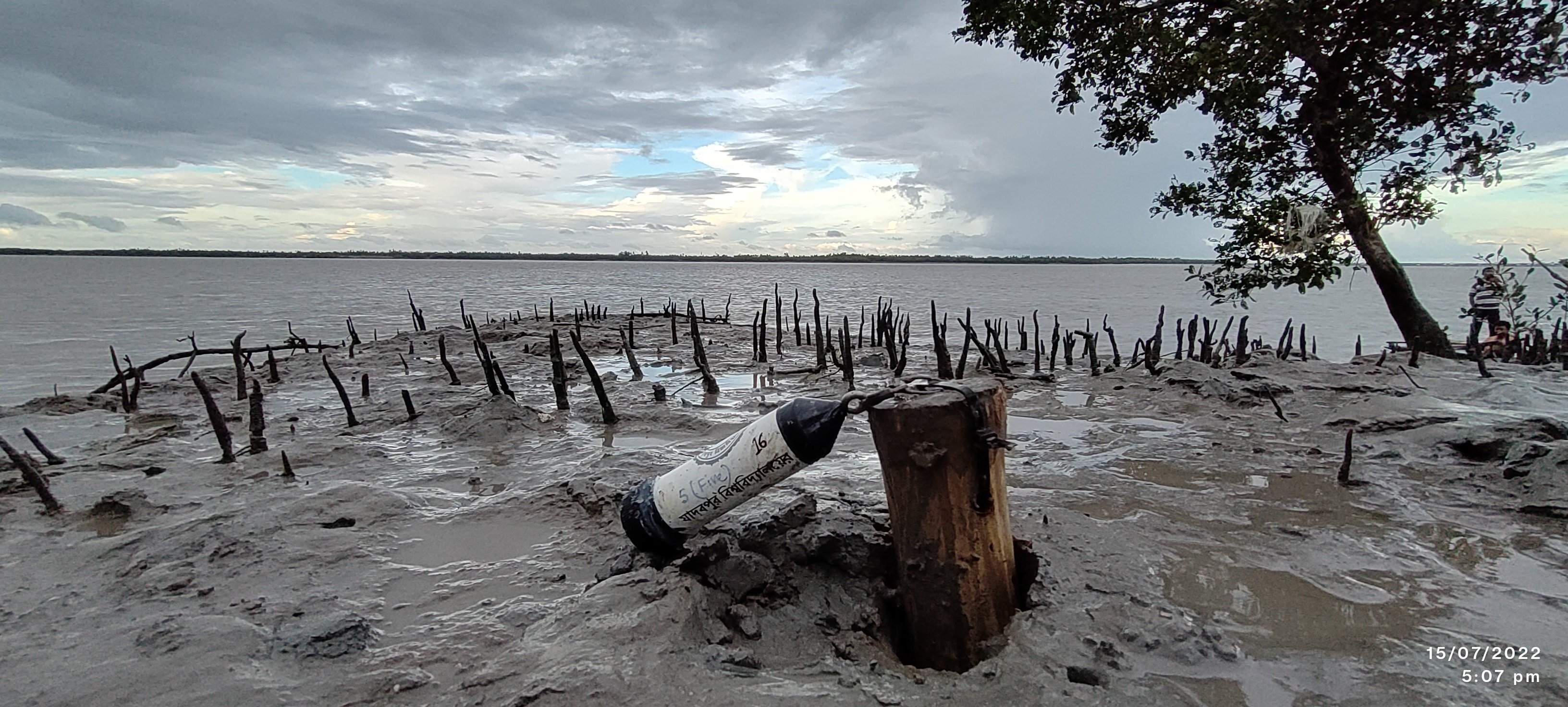
A Mini Buoy monitoring tidal inundation, currents, and waves along an eroding mangrove edge in the Indian Sundarban. Credit: Sumana Banerjee.
2. Water quality monitoring in the Indian Sundarban delta
In the Indian Sundarban delta, the sustainability of the eco-system fundamentally depends upon water quality.
Climate change, and other disturbances, such as inorganic fertilizer run off and untreated sewage is having a detrimental effect on the mangrove-dependant ecosystem as well as on the health, lives, and livelihoods of delta communities. Women, whose livelihoods depend on collecting fish and shrimp from the mudflats are increasingly reporting gynaecological and skin diseases, attributed to prolonged exposure to highly saline waters.
Mangrove species composition is also changing, with more salt-tolerant species out-competing species preferring more freshwater conditions. Embankments are failing in the pre-monsoon season, resulting in high saline waters flowing onto agricultural lands, affecting crops and fishponds, causing food insecurity, and damaging the livelihoods of delta communities.
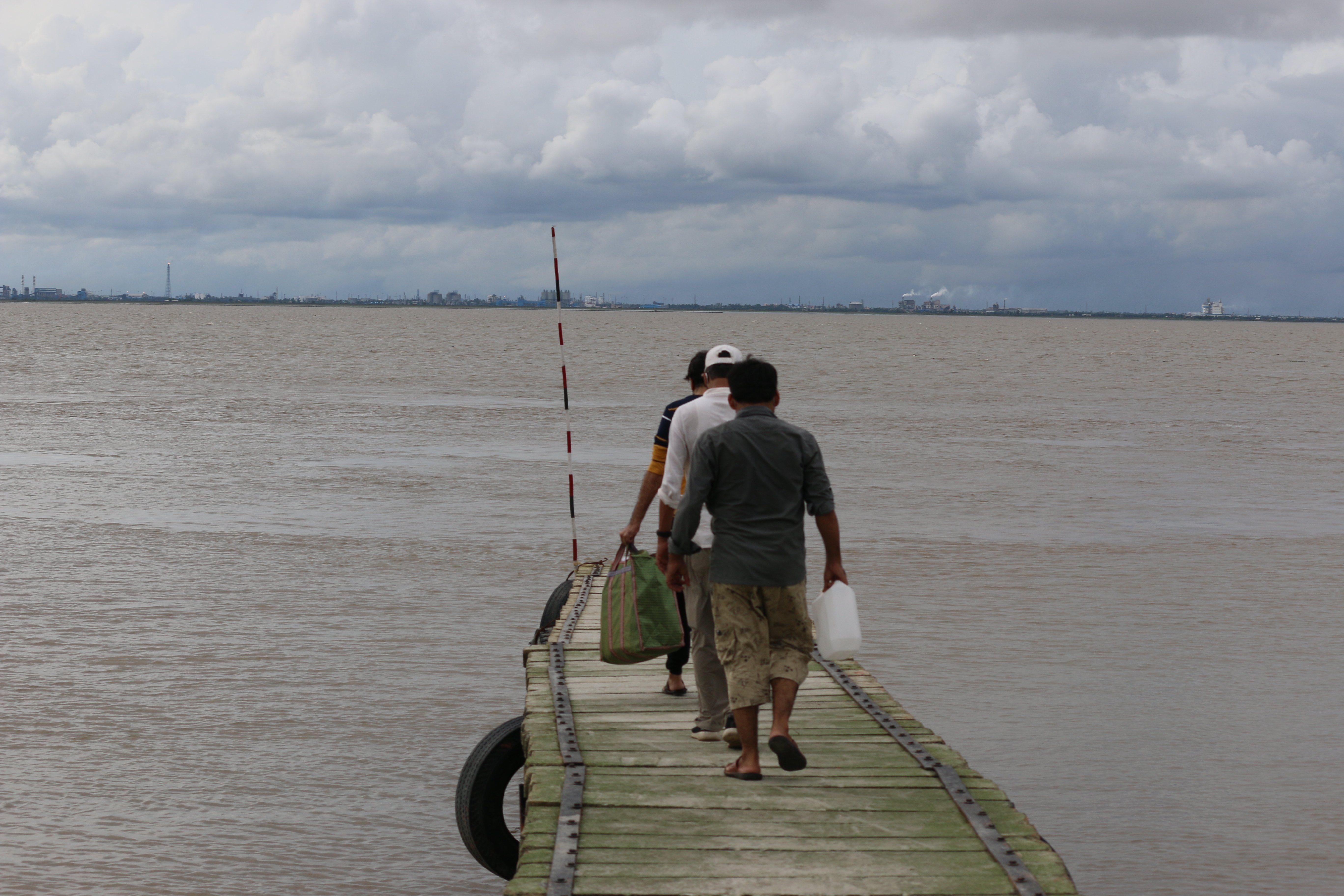
Preparations for water sampling in the Hooghly River in Indian GBM delta. Credit: Sumana Banerjee.
Until now, no water quality monitoring at all occurred on the Indian side of the GBM delta, meaning no baselines - essential for developing environment management strategies and policy - existed.
To address this urgent challenge, the hub has developed a systematic monitoring programme which has established the first ever full baseline for water quality in the region. The programme monitors over twenty locations, and after monitoring for a further two years, the hub will have provided three full years of water quality monitoring data to the Sundarban region.
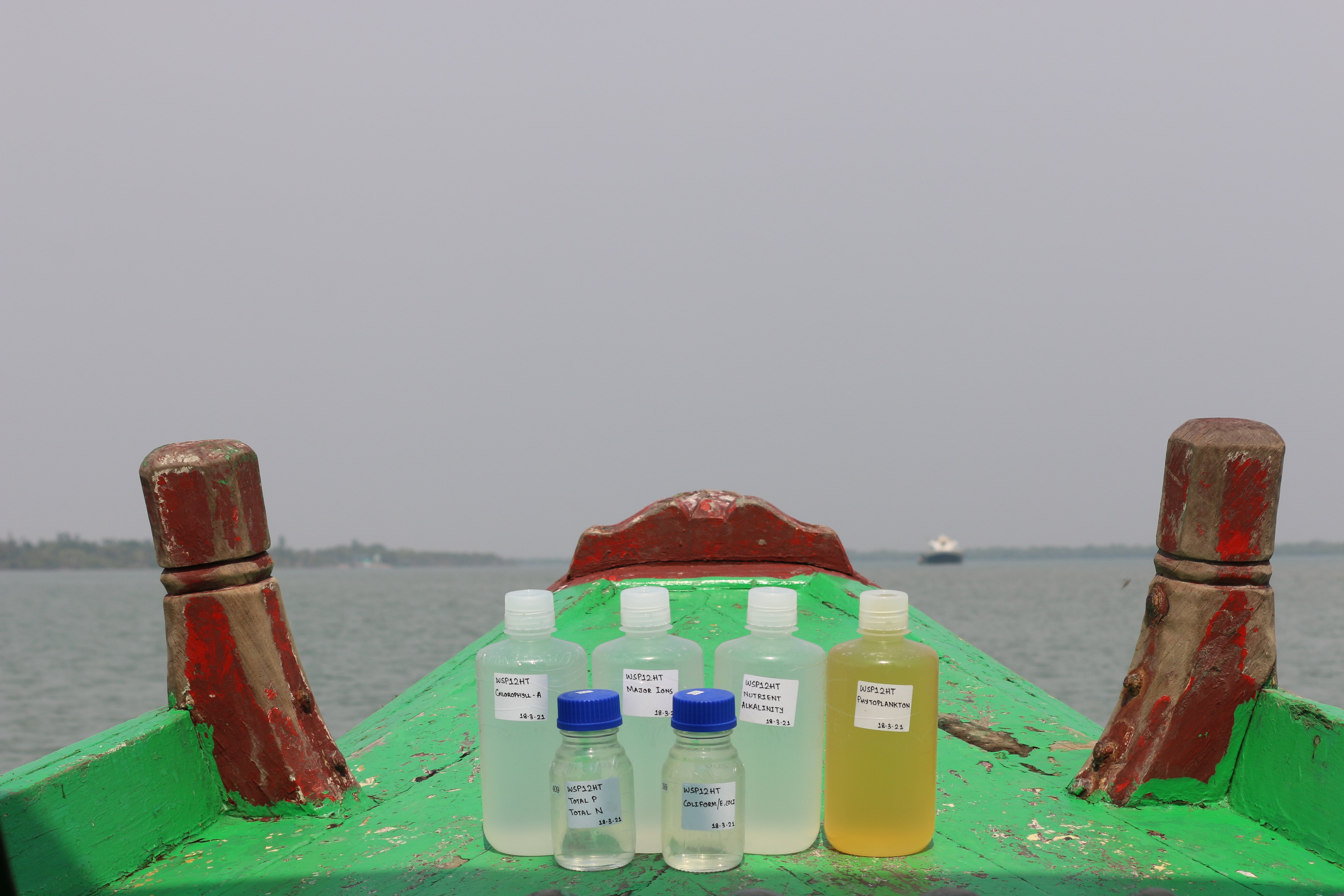
Water samples on the deck of the boat on the Gomdi River in the Indian GBM. Credit: Sumana Banerjee.
3. Ponds on Asian mega-deltas: Important and threatened socio-ecological systems
In 2021, hub members published a journal article in a peer-reviewed regional geography journal which was one of the first to use multimedia to showcase the narratives and lived experiences of those who live and work in tropical Asian mega-deltas.
Using videos, photography, and audio, the hub described the characteristics of ponds and their place in the intrinsically connected human-environmental fabric of these delta regions. The aim was to bring to life descriptive natural-cultural heritage inventories, taking into account human populations continuing to expand, predicted increases in temperatures, flooding, and frequency of extreme events threatening the already degraded condition and ability of delta pond socio-ecological systems to provide food and water security.
Throughout 2022 and as international transport started to open as Covid-19 restrictions began to lift, the hub collected sediment cores from a series of oxbows, cut-off channels, and floodplain lakes in India, Bangladesh, and Vietnam. This lake coring represents a first in the region, and sheds light on delta environmental histories, especially flooding and pollution.
This pioneering work is also providing information on delta system development - ‘delta stories’ - before human memory and written histories, and so informs delta people of their own water landscape’s evolution.
And this is only a snapshot of the work our hubs do
Our Water Security and Sustainable Development Hub and the Living Deltas Hub are making change happen.
And this is only the beginning.
Find out more about what you can do to help at the World Water Day website.
You might also like:
- Find out more about the Water Security and Sustainable Development Hub
- Find out more about the Living Deltas Research Hub
- Discover why water matters at the World Water Day website
- The article: ‘Lab in a suitcase’ could provide safer water for millions
- The blog: How our ‘lab in a suitcase’ empowers water researchers in Tanzania
- The blog: Inexpensive & open-source sensors could dramatically improve the success of mangrove plantation schemes.
- The blog: Mini Buoys in the Indian Sundarban: a story of challenges, collaboration, and commitment
- The case study: Protecting & restoring mangrove forests to support coastal resilience in Asian mega deltas
- The case study: Water quality for sustainable development
- The case study: Multi-use ponds for sustainable delta livelihoods
- The article: Tropical Asian mega-delta ponds: Important and threatened socio-ecological systems
- The blog: Coring the deltas – Lessons learned from 3 memorable field excursions in 2022
- Explore the Living Deltas blog: Water Log
